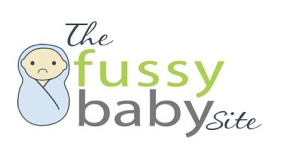New Research: Husbands May Be Key To Reducing Colic
New research published in the journal Child: Care, Health and Development suggests that husbands may play a significant role in whether or not a baby has colic.
We’ve known for a long time that a mom’s ongoing (“trait”) depression or anxiety – both prenatally and postnatally – are correlated with having a fussy baby. However, the role of the father has largely been ignored in the research.
The present study, however, looked at whether a mom’s a) general support system, b) happiness with her marriage, and c) support of the partner in caring for the baby had an impact on the baby’s level of fussiness.
The results were pretty surprising: the #1 factor that “protects against” colic is the mom’s happiness with her marriage. In other words, moms who reported high levels of marital satisfaction prior to and after giving birth were less likely to have a colicky baby; and this was the case even when the mom was suffering with depression.
What’s even more surprising is that marital happiness was even more of a “protective factor” against colic than having a partner who helps care for the baby.
This means it may be even more helpful for a husband to work hard at keeping his wife happy than it is for him to help with the baby (not that I recommend not helping with the baby!).
Finally – and not so surprisingly – the study found that moms who had high levels of social support, both before and after giving birth, were less likely to have colicky babies.
So, can parents really PREVENT colic?
While this study certainly seems to suggest that parents – and particularly fathers – can have a direct impact on colic, the truth probably isn’t quite so cut and dry.
There are a few important things to keep in mind before jumping to that conclusion:
- As already mentioned, research shows that prenatal “trait” anxiety or depression is correlated with having a fussy newborn. However, as with all correlations, this doesn’t prove causation. In other words, we don’t know that prenatal depression CAUSES colic.
- Mom who are depressed during pregnancy are likely to remain depressed during the postnatal period. And we know that depression can have an impact on the quality of the care the mom gives her baby. It can also impact a mother’s report of her baby’s fussiness; a depressed mom is more likely to say her baby is “very fussy” than a mom who isn’t depressed. And since almost every study on colic relies on the mother to report her child’s colic or fussiness, not all reports may be entirely accurate.
- Given all this, it’s not a big stretch to imagine that moms who are very happy with their marriage could potentially report lower levels of depression, as well as less fussiness (after all, if they are very happy in their marriage, they will also tend to be more happy and positive all around).
Final thoughts
While this research isn’t exactly groundbreaking, it’s interesting to consider how husbands or partners may be able to help reduce colic symptoms. It’s clear that partners play an important role, both through being supportive of the mom, and by caring for the baby.
While this is likely an indirect effect – the partner’s help and care reduce the mom’s stress levels, thereby making her a more effective and happy mom – it’s a great reminder to new parents that your relationship matters more than you think!
Interested in learning more about the research on fussy babies? Like how having a fussy baby impacts a marriage, or whether a stressful pregnancy or birth could cause colic? If so, download my free, 4-page High Need Baby Fact Sheet now!
photo credit: cheriejoyful wisdom kissing ozare via photopin (license)
Other Posts You May Like
50+ Best Toys & Products for Spirited Kids, 0-5: Christmas Gift Guide
How to be a Good Facebook Group Member (and Online Citizen)
“Why are You So Tired?”: Here’s Why New Moms Are Walking Zombies
New Research: Husbands May Be Key To Reducing Colic
4 Causes Of Evening Fussiness In Babies (And How To Fix Them)


